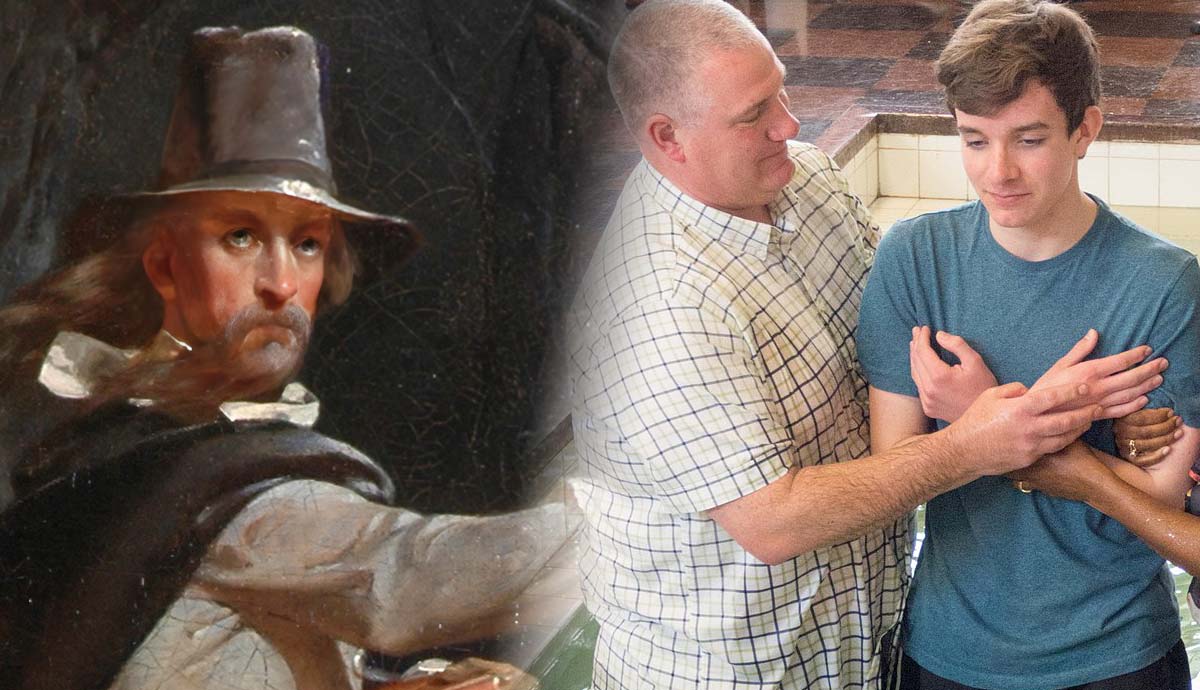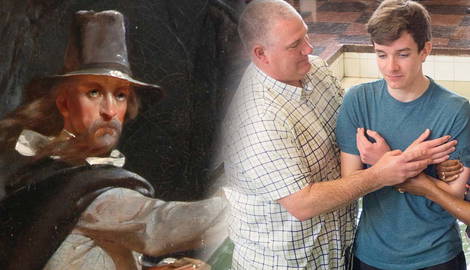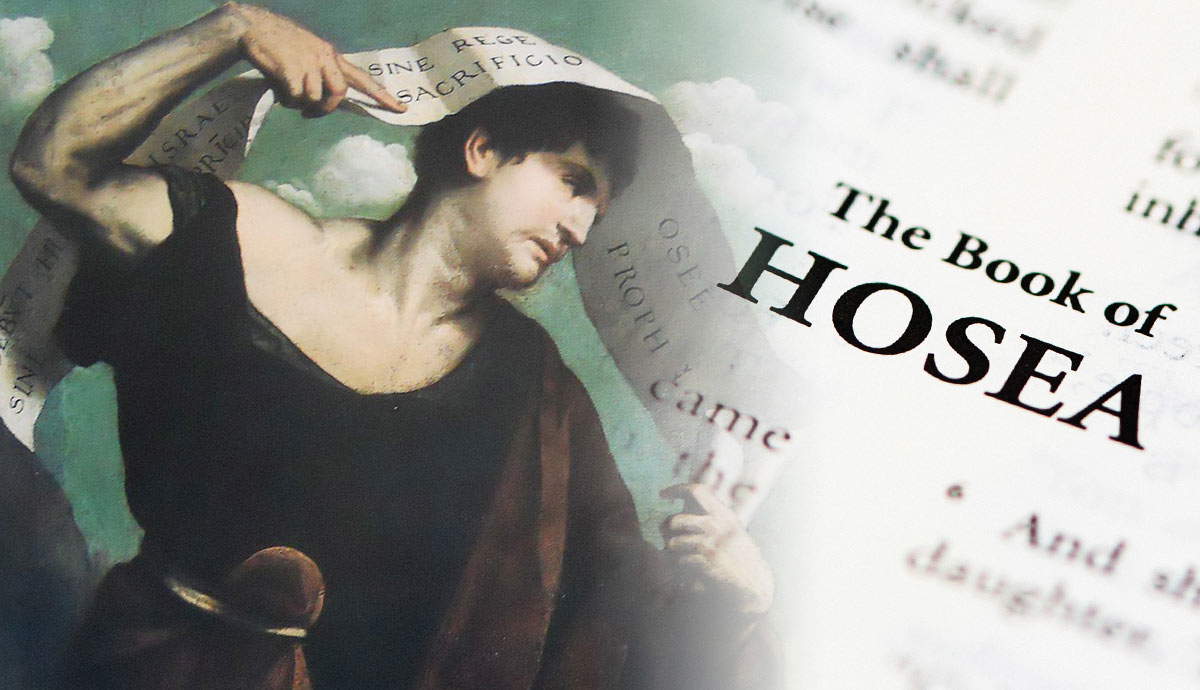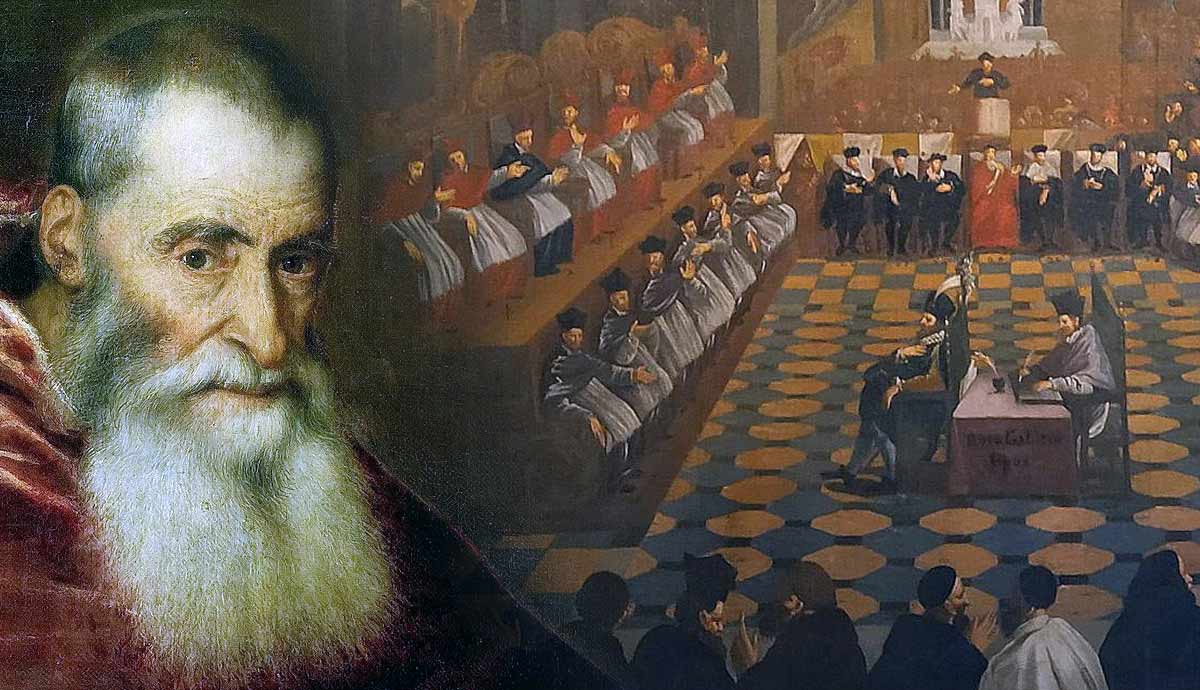
Contrary to popular belief, Baptists did not come from the 16th-century Anabaptist Movement. Rather, they grew from Puritanism in the Netherlands and England. As their name suggests, a key aspect of their faith is that baptism takes the form of immersion and only those capable of understanding their beliefs can be baptized. Because of the era in which the Baptists’ beliefs were established, religious freedom was a principle they fought for with vigor and are still known for. Baptists are by no measure a monolithic group and may identify as Baptist though differing on many less important issues.
What Are the Origins of the Baptists?

A common misconception about Baptists is that they have their origins in Anabaptism. Though Baptists and Anabaptists share many views, they do not share this lineage. The Baptist Movement originated from radical Puritanism. Puritanism was a religious reform movement that originated in the Church of England in the late 16th century.
Baptists are people who reject infant baptism in favor of baptism by immersion. They subscribe to the idea that belief precedes baptism and would, therefore, exclude infants from being baptized. This form of baptism seems to have been the default view for the first 500 years of the Christian church. Infant baptism then became the norm until the Reformation.
The Anabaptists, originating during the 16th century Reformation, were the first to embrace this theology and reverted to baptizing people mature enough to comprehend their beliefs. The Baptist Movement developed about 100 years later during the 17th century and shared the Anabaptist beliefs about baptism.

Early in their development, there were two types of Baptists. One group was the General Baptists and the other was the Particular Baptists. General Baptists held to Arminian theology and emphasized free will, believing Christ made atonement for all people but only those who accept it by free will receive it. Particular Baptists believed in Calvinist theology which teaches “limited” or “particular” atonement for the elect, those who God predestined for salvation.
The Particular Baptist movement exploded, while the General Baptists soon subscribed to heretical ideas about Christ and the nature of the atonement which saw their numbers dwindle and they almost disappeared.
The oldest distinctly Baptist Church was traced to Amsterdam where Thomas Helwys and a pastor named John Smyth led the congregation in 1609. Shortly after, when Baptist belief spread to England, Helwys took over leadership of the Baptist Movement. In 1611, he published the first Baptist confession of faith “A Declaration of Faith of English People.” Helwys established the General Baptist Church in Spitalfields, London, in 1612. Later he pushed for separation between Church and State to ensure freedom of religion. He died in prison for his efforts.

Roger Williams and John Clarke were notable names in establishing Baptist Churches in America. Williams, born in England, was educated in Theology at Cambridge and left his native land for America. He arrived in America in 1631. He served as a minister in the Anglican Church in Massachusetts Colony. When he became unpopular for his views on Native Americans, land rights, and his conviction that magistrates had no authority on religious matters, he was banished from Massachusetts.
He was one of the founders of the Rhode Island Colony. He acquired land from the Narragansett people and settled the Providence Plantations. He became a Baptist, and soon after established the First Baptist Church of America. He fought for freedom of religion and was a great proponent of the separation of Church and State. To this day, he is one of the heroes of religious freedom in America. As a matter of principle, he argued for religious toleration for all faiths, including Jews, Muslims, and any other religious conviction.
Though the various Baptist groupings share the same core beliefs, non-essential and historical differences have led clusters of Baptists to band together. Among them are the Southern Baptists, Particular Baptists, General Baptists, Missionary Baptists, Primitive Baptists, Landmark Baptists, and even Seventh Day Baptists.
General Beliefs

Baptist beliefs align with Evangelicalism. As the Baptist faith and doctrine developed, various Baptist professions of faith saw the light, among which were the 1689 London Baptist Confession of Faith, the 1742 Philadelphia Baptist Confession, and the 1833 New Hampshire Baptist Confession of Faith, among others.
Baptists believe in the Trinity: three persons, the Father, Son, and Holy Spirit, being one God. They recognize the baptism of believers and Communion as sacraments and accept the principles of Sola Scriptura, Sola Fide, and Sola Gratia (the Scripture alone, faith alone, and grace alone). Baptists believe only the Bible, and no other source, such as tradition, is the rule of faith. Baptists believe believers are saved by grace alone, and no work has any merit toward salvation.
The priesthood of all believers is a core principle in Baptist belief, meaning there is no difference between a layperson and clergy in terms of status and privilege before God. They reject the idea that confession should be done to a priest or mediator to attain forgiveness. They do, however, recognize the need for some to be set apart for ministry. Some Baptist churches reserve the office of Pastor for men though others accept women in that role as well.
Distinct Beliefs

Baptists received their name from a belief that was not unique to them but distinguished them from most reformed churches for the first 300 years of their existence: baptism by immersion. Unlike baptism in the Catholic, Anglican, Methodist, and other similar traditions, Baptists immerse or plunge the baptismal candidate, so they are covered with water from head to toe.
This practice symbolizes the person being buried and rising to a new life as Christ did (Romans 6:3-6). Matthew 28:19 is central to this view, indicating that the person to be baptized must be a disciple. Making them disciples precedes baptism. Even when a person is baptized as an infant, it is expected that the person seeking membership should be rebaptized according to the believer’s baptism taught by the Baptists. Baptists practice closed communion, meaning the Last Supper is only available to those who have been baptized. The communion serves only as a commemoration or remembrance of what Christ has done.
Baptists believe no one can or should be forced to think a certain way. This principle is called Individual Soul Liberty. Every person is personally responsible for what they believe according to their conscience if it aligns with biblical principles. This allows for cultural differences to be accommodated in Baptist churches.

Saved Church Membership is central to the Baptist faith. To be a member, the expectation is that the person has a public expression of their faith which identifies the individual with the Baptist faith.
Though not unique to Baptists, the focus on religious freedom is prominent in Baptist circles. Considering the context Baptist beliefs sprang from, this is understandable. The Counter-Reformation was in full swing in Europe in the 17th century and religious persecution was common.
Many fled Europe to escape being imprisoned, tortured, or killed for their faith. Groups like the pilgrims who sailed on the Mayflower in 1620 and the Huguenots who fled to South Africa, settling in 1671, are examples of people fleeing religious persecution in Europe. The Pope was head of the Roman Catholic Church and the reigning monarch in England was head of the Anglican Church.
Thomas Helwys authored A Short Declaration of the Mistery of Iniquity (1612) highlighting the importance of religious liberty as a right for everyone. This right, he believed, was for everyone, even those he disagreed with. Baptists realized that when the State and Church mixed, persecution followed, therefore Baptists were staunch supporters of the separation of Church and State that was later codified in the First Amendment of the Constitution of the United States of America.
Structure

In the Baptist tradition, local churches are autonomous. No structure above the local church has authority over the local church. Local churches appoint their own pastors and determine how the church will be governed and structured. Though autonomous, these churches can voluntarily cooperate with other churches in regional and national structures.
Most likely due to the awareness of abuse of power, Baptists tend to be anti-hierarchical in terms of church leadership and authority. They prefer a congregationalist structure for their churches. Congregationalism means the local church governs itself and has full control of its own governance.
In Independent Baptist Churches, they believe the individual church is answerable to God for their conduct and what they teach. They also recognize two offices in the Church. The first is that of pastor and the second is deacon. Pastors are generally associated with descriptions of elders in the Bible. The pastor has the task of spiritual leadership of the congregation and its members while the deacons are servants who assist in the maintenance and management of the church and its facilities.
The Baptist World Alliance is a network of multiple Baptist groups. They are not a denomination but provide a vehicle for presenting the global presence of Baptists around the world in a coherent fashion.










